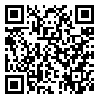BibTeX | RIS | EndNote | Medlars | ProCite | Reference Manager | RefWorks
Send citation to:
URL: http://jdisabilstud.org/article-1-2986-en.html
2- Assistant Professor, Department of Psychology and Education of Exceptional Children, Science and Research Branch, Islamic Azad University, Tehran, Iran
3- Assistant Professor, Department of Educational Psychology, University of Tehran, Tehran, Iran
4- Professor school of Electrical and computer engineering, College of Engineering, University of Tehran, Tehran, Iran
Abstract
Background & Objectives: Children with reading disorders struggle to learn to read, write, and spell despite progress in other subjects. These children may have poor reading comprehension and difficulty with writing and punctuation. Children with reading disorders usually suffer from negative personality behavioral problems that affect their quality of life. This outcome is due to their communication problems within the family and incorrect parent–child relationships. Social skills are a set of acceptable learned skills that enable a person to have an effective relationship with others and to avoid unreasonable social reactions. Various research studies have emphasized the importance of executive functions in understanding and learning social skills. Digital games have many motivational dimensions that can be effectively used as a strategy in learning environments. In various formats, numerous and diverse programs have been designed to improve cognitive skills, including active memory. Among the most used and popular programs are cognitive computer games. Cognitive computer games positively affect the working memory and reading performance of students with disabilities in reading. Computer games challenge people's skills like accuracy, speed of action, and problem–solving ability. Therefore, these types of games can be used to improve the performance of students who have problems with attention, accuracy, or problem–solving. The important point is that computer game training was not done to solve the social skills problems and reading performance of children with reading disorders. Therefore, the novelty of the research topic emphasizes its necessity. In this regard, the current research aims to investigate the effectiveness of computer games on the social skills and reading performance of children with reading disorders.
Methods: This quasi–experimental research employed a pretest–posttest and follow–up design with a control group. The statistical population comprised all the elementary school students referred to learning disorder centers in Saqqez City, Iran, in 2021–2022. A list of children with reading disorders was first prepared to select the members. Then, among these people, 30 qualified volunteers entered the study as a sample and were randomly placed into the experimental and control groups (15 people in each group). The inclusion criteria were having reading problems, not taking psychiatric drugs in the last three months before entering the research, and not receiving or participating in parallel treatment courses during the time of the research. The exclusion criteria were as follows: non–cooperation, not completing the assignments presented in the meetings, and absence of more than two sessions in the meetings. It has been education. After that, the experimental group participants received ten 60–minute intervention sessions of computer games. No training was provided for the control group. To measure the social skills of the subjects in the research, the social skills questionnaire of Gresham and Elliott (Gresham and Elliott, 1990) was used, and to measure the reading performance, the Nama test (Moradi et al., 2007) was used. In all three pretest, posttest, and follow–up stages, the mentioned questionnaires were implemented for the experimental and control groups. Data analysis was done using variance analysis with repeated measurement using SPSS version 23 software at a significance level 0.05.
Results: The results of the variance analysis with repeated measurements showed that the intervention of computer games significantly increased the social skills (p=0.001) and reading performance (p=0.001) of children with reading disorders. The impact of computer games on social skills was 0.87, and reading performance was 0.32.
Conclusion: The present study's findings indicate that computer games improve the social skills and reading performance of children with reading disorders.
| Rights and permissions | |
 |
This work is licensed under a Creative Commons Attribution-NonCommercial 4.0 International License. |



